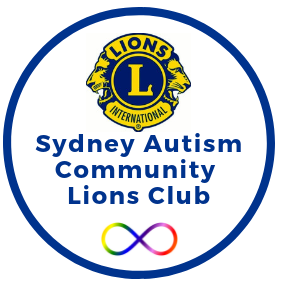Since launching the Autistic Writing Competition on the 26th of September, a number of people have expressed their concerns over the theme of the Competition, as well as who we are accepting entries from. The two main questions being asked are:
- Why is the Writing Competition open to non-autistic entrants as well as autistic entrants?
- The theme of the Writing Competition is “the autistic experience”. How can non-autistic people possibly understand what it is like to be autistic?
These are sensitive issues, and we will do our best to answer them here.
We had considered the possibility of restricting the Competition to just autistic entrants, but ultimately we decided to open it to non-autistic people as well for two main reasons; one, we could not find a workable way to fairly restrict entries to autistic people of all kinds, and two, we believe there is merit in allowing non-autistic people to share their perspective as well.
Within the autistic community, you have people who have a formal diagnosis, as well as people who do not have a formal diagnosis, be it due to circumstances precluding individuals receiving a diagnosis, or perhaps they do not wish to seek a diagnosis and would prefer to identify as autistic. These are all valid autistic manifestations.
We could have made this Competition considerably restrictive by demanding proof of diagnosis and making that a condition of entry. However, this would not have been fair to those who could not, or would not, provide proof. There are also potential security and legal issues at play in sharing diagnosis-related documentation in an online format that we, as a small volunteer organisation, are not set up to handle.
We suppose we could have just taken it on good faith that all entries we receive come from autistic people. After all, all members of SACLC are proudly autistic themselves and are thus probably attuned to picking out pieces written in a ‘naturally autistic voice’. This, however, is a manifestly flawed approach, since it relies on subjective, intuitive criteria to come up with that determination.
So we felt we had no choice but to allow entries from non-autistic people, subject to a set of rules, key of which preclude works “that promote the belief that applied behaviour analysis as a suitable therapy for autistic people […] that promote the belief that vaccines cause autism […] that promote the belief that autism can be cured and/or is a disease”.
SACLC will not be judging the entries per se. The entries will ultimately be judged by Spectrum Writing. What we will be doing is checking to see if entries are compliant with the rules. Entries that violate these rules will not be judged, and thus will not be promoted nor published by us. We feel this is sufficient to prevent, or at least slow down, the dissemination of ableist views of autistic people.
As a club with a wholly autistic membership, SACLC would be inclined to agree that non-autistic people could not possibly understand what it is like to be autistic. Nor would we want non-autistic entrants to speak on autistic people’s behalf.
When we came up with the theme “the autistic experience”, we thought about it in broader terms. Yes, there is the ‘autistic experience’ that is unique to autistic people that can only be authentically articulated by actually autistic people. But there is also the ‘autistic experience’ as experienced by those close to autistic people: family, friends, carers, support workers, etc. We feel there is merit in sharing both kinds of ‘autistic experience’.
We also feel that, with the rules imposed, this might present an opportunity for non-autistic people to reflect upon their understanding and preceptions of autism, and their interactions with autistic people, which we hope would be an educational experience for them.
We thank you for your questions and welcome any and all feedback. If you have any further concerns, or any more questions, do not hesitate to reach out to us.
We look forward to your participation in the Autistic Writing Competition!
